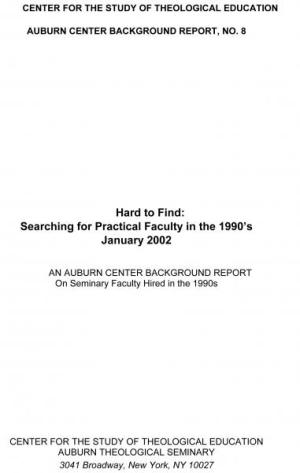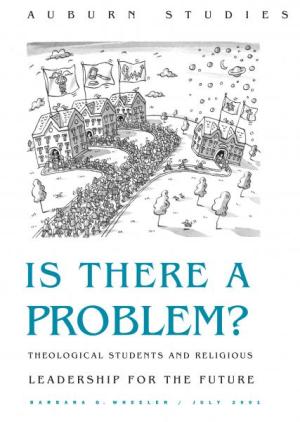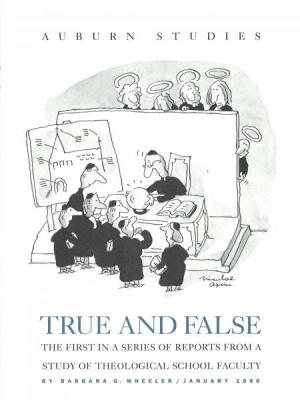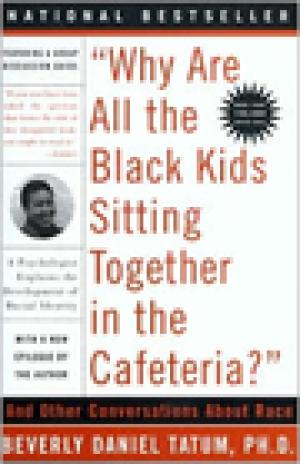Resources
This one-page document gives advice on how to handle large classes. Specific items it examines include creating an interactive lecture, handing out of class assignments, and miscellaneous tips. It is written by Rich Felder an expert in Engineering education.
Brief review of things to be sure to cover the first day, an argument for the importance of establishing a personal connection and building rapport, and some suggested activities to introduce the students to each other and yourself.

Journal Issue.


This first report of The Auburn Center's study of theological school faculty addresses four key issues which are central for understanding the current state of theological faculty: retirement and replacements, morale, women on theological faculties, and scholarship and church service. Bulletin No. 4 (January, 1996) of the Auburn Center's occasional research bulletin. Auburn Studies. (From the Publisher)

In 'Why Are All the Black Kids Sitting Together in the Cafeteria?' And Other Conversations About Race, Dr. Tatum provides us with a new way of thinking and talking about race through the lens of racial identity. She explains that all of us have a racial identity and must strive to affirm it. For people of color, the development of a constructive racial identity requires being able to recognize and reject the bombardment of negative stereotypes and to embrace a history of resistance and empowerment rather than passive victimization. For Whites, the challenge is to engage in a process of racial identity development which leads to an awareness of White privilege and a determination to actively work against injustice - and this requires the strength to reject a system that rewards them, and to reclaim the legacy of White allies. For many, this is uncharted territory. This book provides a road map for those who want to make the journey and better understand the racial dynamics of their daily lives. Tatum extends her ideas about racial identity development beyond the usual Black-White paradigm to embrace the unique circumstances of Latinos, American Indians, Asians, as well as biracial youth. Also included is a list of resources for further reading as well as a list of books for parents and teachers to recommend to children of all ages. Using real-life examples and the latest research, Tatum presents strong evidence that straight talk about our racial identities - whatever they may be - is essential if we are serious about facilitating communication across racial and ethnic divides. (From the Publisher)